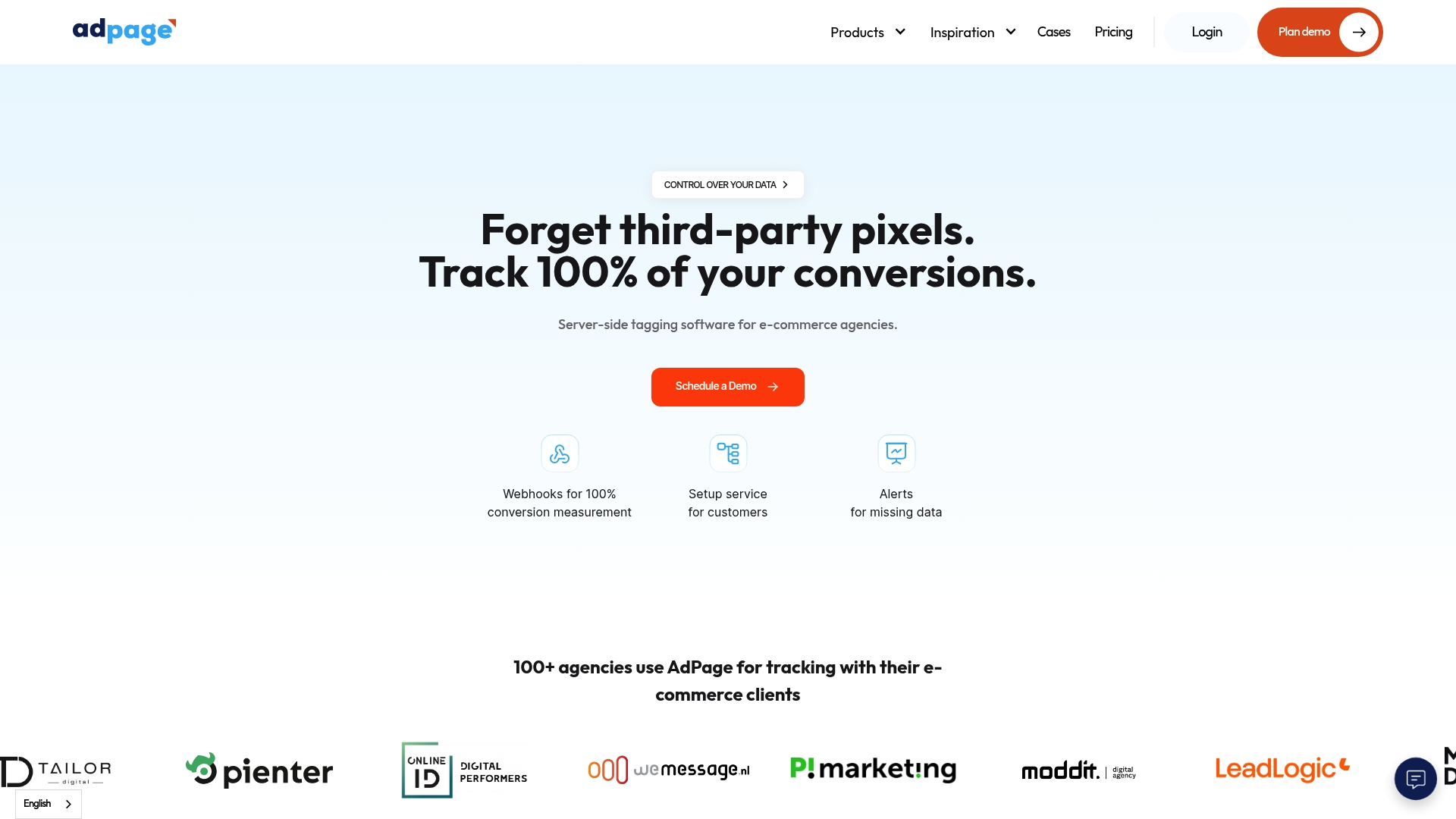Getting permission before collecting anyone’s personal information is now non-negotiable for every business working online. GDPR fines have topped over €4 billion since 2018, with some companies losing millions for simply skipping proper consent processes. Most think these rules are just about ticking boxes to stay out of trouble. In reality, smart consent management is what sets future-proof brands apart and directly shapes the level of trust consumers have in them.
Table of Contents
- What Is Consent Management And Its Importance?
- The Role Of Consent In Data Privacy Regulations
- Impact Of Consent Management On Consumer Trust
- How Consent Management Influences Marketing Strategies
- Measuring The Effectiveness Of Consent Management Practices
Quick Summary
| Takeaway | Explanation |
|---|---|
| Consent management builds user trust | By securing explicit permission for data use, organisations enhance transparency and foster customer confidence. |
| Effective consent systems require clarity | Clear, jargon-free communication about data handling allows users to make informed decisions regarding their personal information. |
| International regulations necessitate robust strategies | GDPR and CCPA demand organisations to establish transparent consent processes ensuring compliance and ethical data management. |
| Consent management enhances marketing effectiveness | Shifting focus to user agency increases engagement and transforms consent into a strategic asset for businesses. |
| Measuring consent practices requires holistic approaches | Monitoring both qualitative user experiences and quantitative metrics ensures organisations understand the effectiveness of their consent mechanisms. |
Below is a table outlining key indicators and approaches for measuring the effectiveness of consent management practices as discussed in the article.
| Evaluation Area | Quantitative Indicators | Qualitative Insights |
|---|---|---|
| User Comprehension | Time to make consent choices | Clarity of language and user understanding |
| User Engagement | Opt-in/opt-out rates | Satisfaction with interaction |
| Interface Usability | Interaction patterns | Ease of navigation and withdrawal of consent |
| Long-Term Trust | Retention metrics | Perceived organisational trustworthiness |
What is Consent Management and Its Importance?
Consent management represents a critical strategy for organisations to secure explicit permission from users regarding personal data collection, processing, and usage. At its core, consent management ensures transparency, builds user trust, and maintains legal compliance in digital interactions.
Understanding Consent Management
Consent management involves creating systematic processes that allow individuals to provide informed, voluntary agreement about how their personal information will be utilised. According to research from Texas A&M University, this approach fundamentally shifts power dynamics by giving consumers greater control over their personal data.
Key characteristics of effective consent management include:
- Providing clear, understandable information about data usage
- Offering granular consent options
- Enabling easy withdrawal of consent
- Maintaining transparent documentation of user permissions
Legal and Ethical Implications
Modern consent management transcends mere regulatory compliance. It represents a fundamental ethical commitment to respecting user autonomy and privacy. Digital marketing professionals must recognise that user trust is the most valuable currency in contemporary data ecosystems.
The implementation of robust consent management frameworks helps organisations:
- Mitigate potential legal risks
- Demonstrate commitment to user privacy
- Build long-term customer relationships
- Ensure alignment with international data protection standards
The following table summarises the key differences and overlaps between legal and ethical aspects of consent management highlighted in the article.
| Aspect | Legal Implications | Ethical Implications |
|---|---|---|
| Focus | Compliance with regulations (e.g., GDPR, CCPA) | Respecting user autonomy and privacy |
| Purpose | Avoiding legal risks and penalties | Building user trust and maintaining transparent relationships |
| Requirements | Explicit permission, transparent data handling | Clarity, voluntary participation, ongoing communication |
| Outcome | Mitigation of legal consequences | Long-term loyalty and improved user perception |
| Documentation | Maintaining records of user consent | Demonstrating commitment to individual rights |
By prioritising consent management, businesses can transform potential privacy concerns into opportunities for building deeper, more transparent relationships with their audience. Learn more about our consent management solutions to understand how modern organisations are reimagining user data interactions.
The Role of Consent in Data Privacy Regulations
Data privacy regulations have transformed the landscape of digital interactions, establishing comprehensive frameworks that prioritise user autonomy and information protection. These regulations fundamentally redefine how organisations collect, process, and manage personal data.
Global Privacy Regulation Landscape
International privacy regulations like the General Data Protection Regulation (GDPR) and California Consumer Privacy Act (CCPA) have set unprecedented standards for data consent. According to research evaluating consent mechanisms, these frameworks mandate explicit user permission and transparency in data processing activities.
Key global privacy regulation principles include:
- Requiring informed and explicit user consent
- Providing clear disclosure about data usage
- Enabling user rights to access and delete personal information
- Establishing strict penalties for non-compliance
Consent as a Legal and Ethical Mechanism
Consent mechanisms serve dual purposes: legal compliance and ethical data management. Organisations must implement robust systems that allow users to understand and control their personal data. This approach goes beyond mere regulatory checkbox exercises, representing a fundamental shift towards respecting individual privacy rights.
The evolving regulatory environment demands that businesses:
- Develop transparent consent processes
- Create user-friendly consent interfaces
- Maintain detailed consent documentation
- Regularly update consent management systems
Explore our comprehensive guide on user data privacy to understand how modern businesses are navigating these complex regulatory landscapes. The future of digital interactions depends on building trust through responsible, transparent data practices.
Impact of Consent Management on Consumer Trust
Consent management represents a transformative approach to rebuilding consumer confidence in digital interactions. As data breaches and privacy concerns escalate, businesses must prioritise transparent and respectful data handling practices to maintain meaningful relationships with their audience.
The Psychology of Digital Trust
Modern consumers are increasingly sophisticated about their digital rights and expect organisations to demonstrate genuine commitment to data protection. According to research published in PLOS ONE, transparent consent mechanisms directly correlate with enhanced consumer perceptions of organisational trustworthiness.
Key psychological factors influencing digital trust include:

- Perceived control over personal information
- Clear communication about data usage
- Demonstrable commitment to privacy protection
- Ability to withdraw consent easily
Building Long-Term Consumer Relationships
Effective consent management is not merely a legal requirement but a strategic relationship-building tool. By empowering users with granular consent options and clear communication, organisations can transform potential privacy anxieties into opportunities for deeper engagement.
Strategies for cultivating consumer trust through consent management involve:
- Providing transparent, jargon-free consent interfaces
- Offering comprehensive yet understandable privacy policies
- Implementing user-friendly consent withdrawal mechanisms
- Regular communication about data protection practices
Learn more about the importance of user consent in e-commerce to understand how proactive consent strategies can differentiate your brand in an increasingly privacy-conscious marketplace.
How Consent Management Influences Marketing Strategies
Consent management has fundamentally transformed marketing approaches, shifting from intrusive data collection to collaborative, transparent user interactions. Modern marketing strategies must prioritise user agency and respect individual privacy preferences to remain effective and competitive.
Redefining Data Collection Paradigms
Traditional marketing strategies relied on broad, often opaque data collection methods. According to research by Doug Hall, contemporary marketers are developing strategies that view consent not as an obstacle, but as an opportunity to build genuine customer relationships.
Key strategic shifts in marketing data collection include:
- Prioritising quality of consent over quantity of data
- Developing more personalised, targeted engagement approaches
- Creating transparent value exchanges for user information
- Implementing granular consent mechanisms
Strategic Implications for Marketing Teams
Consent management is no longer a compliance checkbox but a fundamental marketing strategy. By embracing user-centric data practices, organisations can transform potential privacy barriers into competitive advantages. Marketing teams must redesign their approaches to demonstrate respect for user autonomy and build trust.
![]()
Strategic adaptations for consent-driven marketing include:
- Designing intuitive, clear consent interfaces
- Developing compelling value propositions for data sharing
- Training teams in privacy-first marketing principles
- Creating dynamic, adaptable consent management systems
Explore personalised marketing strategies to understand how consent management can unlock more meaningful, trust-based customer interactions in the digital marketplace.
Measuring the Effectiveness of Consent Management Practices
Measuring consent management effectiveness requires a comprehensive approach that goes beyond simple compliance metrics. Organisations must develop nuanced strategies to evaluate the quality, transparency, and user experience of their consent mechanisms.
Evaluating User Comprehension and Engagement
According to research from Carnegie Mellon University, the effectiveness of consent management is deeply tied to user comprehension and interface design. Organisations need sophisticated metrics that assess how well users understand and interact with consent interfaces.
Key evaluation criteria for consent management include:
- Clarity of consent language and terminology
- Ease of understanding privacy choices
- Time taken to make consent decisions
- User satisfaction with consent processes
Quantitative and Qualitative Performance Indicators
Effective consent management measurement requires a holistic approach combining quantitative data and qualitative insights. This approach helps organisations understand not just compliance, but the actual user experience and perceived value of their consent practices.
Strategic measurement approaches involve:
- Tracking consent opt-in and opt-out rates
- Conducting user experience surveys
- Analysing consent interface interaction patterns
- Monitoring long-term user trust and retention metrics
Learn more about consent management platforms to understand the sophisticated tools available for measuring and improving consent practices in your organisation.
Unlock Trust and Drive Results with Consent-Driven Tracking
If you have ever struggled with lost conversions or unreliable analytics, you are not alone. As highlighted in ‘Understanding the Impact of Consent Management in Marketing,’ many marketers face mounting legal pressures, shifting data regulations, and the risk of breaking user trust. Lack of transparent consent management not only undermines privacy compliance but also prevents you from collecting the high-quality data vital for competitive digital campaigns. Protect your reputation, inspire confidence, and mitigate data loss by moving towards a solution that puts user consent and trust at its centre.

Ready to see measurable improvement in your conversion rates and data transparency? With AdPage, you gain a platform offering server-side tagging and robust consent management tools specifically built for marketers and agencies like you. Get started today to ensure you never miss a conversion due to consent uncertainty, stay fully GDPR compliant, and build deeper trust with your customers. Visit AdPage’s website and take control of your marketing future now.
Frequently Asked Questions
What is consent management in marketing?
Consent management in marketing refers to the systematic process by which organisations secure explicit permission from users for collecting, processing, and using their personal data. It emphasizes transparency and respects user privacy.
Why is consent management important for consumer trust?
Consent management is crucial for consumer trust as it empowers users with greater control over their personal information. Transparent consent mechanisms foster trust, improve the perception of a brand, and build long-term relationships with consumers.
How does consent management affect data collection strategies?
Consent management influences data collection strategies by shifting the focus from intrusive methods to collaborative interactions. It encourages marketers to prioritize quality consent over quantity of data, resulting in more personalised and respectful engagement with users.
What factors should be considered when implementing consent management practices?
When implementing consent management practices, organisations should consider clear communication about data usage, user-friendly consent interfaces, the ability for users to withdraw consent easily, and maintaining transparent documentation of user permissions.



.png)
